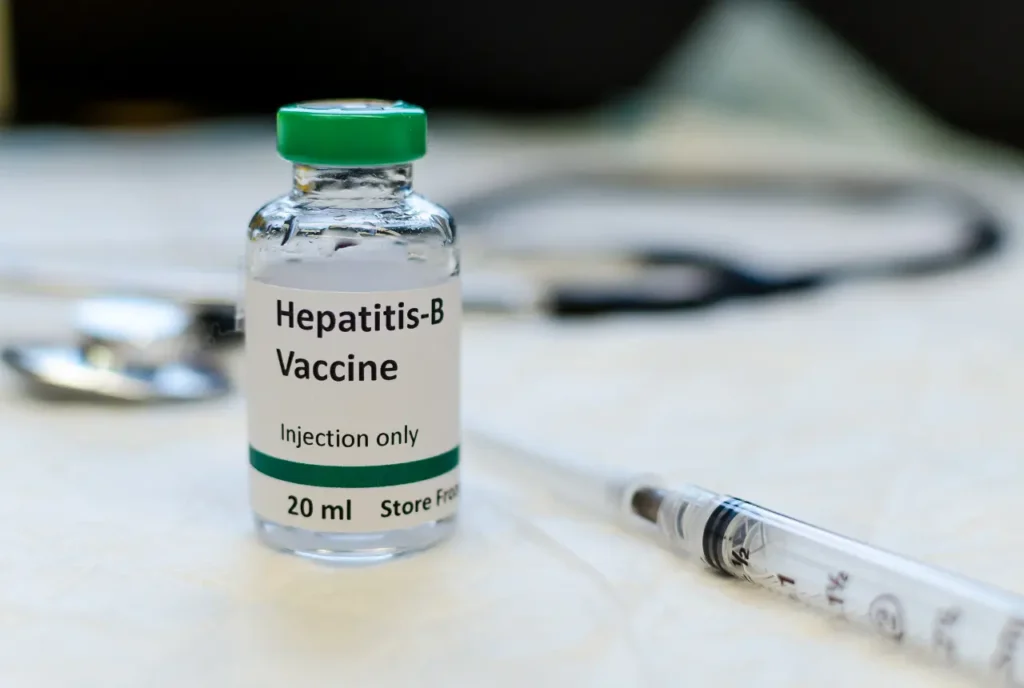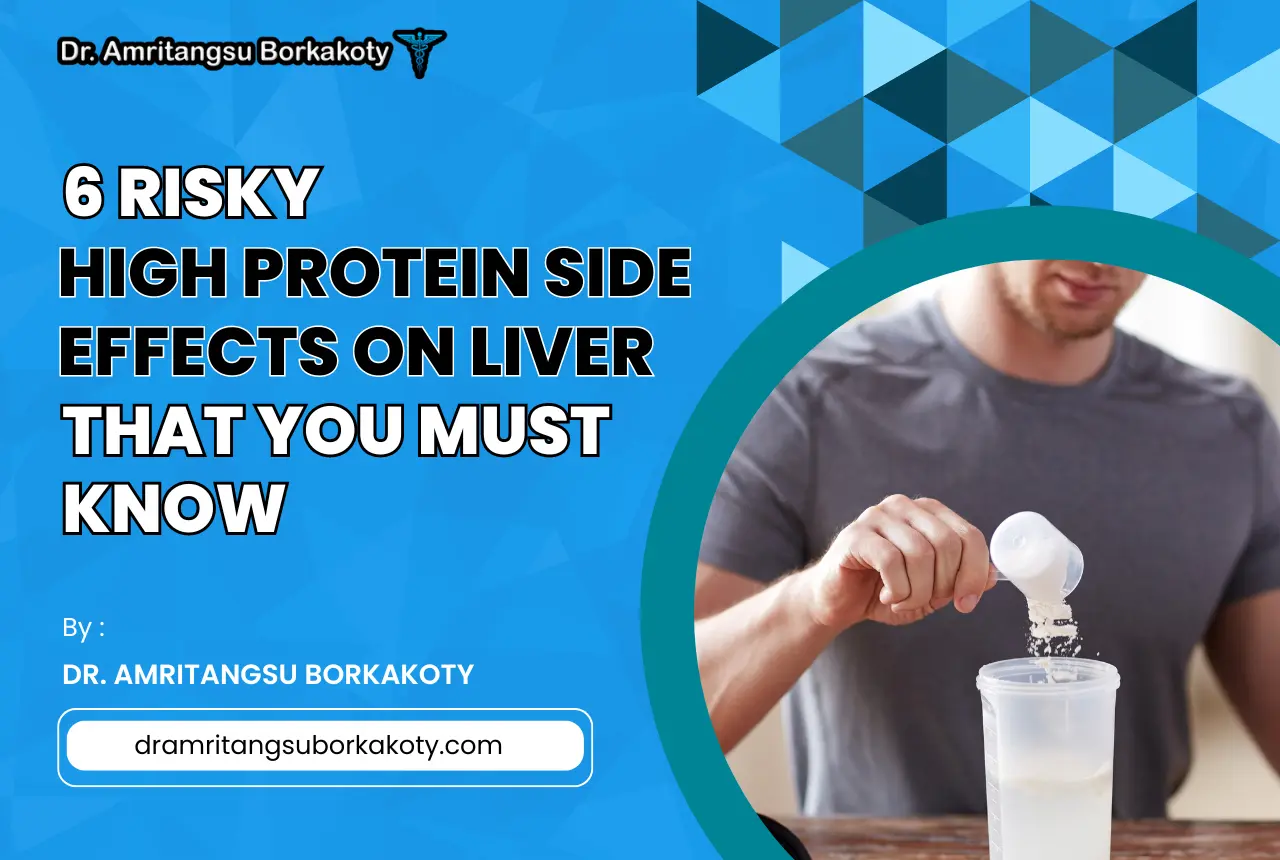
-
 Posted By Dr. Amritangsu Borkakoty
Posted By Dr. Amritangsu Borkakoty -
-
Comments 0
Hepatitis is defined as “hepatic inflammation.” A liver can become inflamed for a variety of reasons, including excessive alcohol consumption, physical injury, an inflammatory response, or a reaction to germs or viruses. One must know the main difference between Hepatitis A and Hepatitis B to tackle them better.
The five most prevalent hepatitis viruses are A, B, C, D, and E. Some hepatitis viruses can cause fibrosis, cirrhosis, liver failure, and even liver cancer. Damage to the liver impairs its ability to operate, making it more difficult for your body to filter out pollutants.
Two common forms – Hepatitis A and Hepatitis B – can have significantly different characteristics. Understanding these differences is crucial for proper prevention and treatment.
These are the Major Difference Between Hepatitis A and Hepatitis B
| Aspect | Hepatitis A | Hepatitis B |
|---|---|---|
| Transmission | Fecal-oral route; contaminated food/water, close contact, poor sanitation, travel to high-risk areas, certain sexual practices | Contact with bodily fluids; blood, semen, vaginal fluids, sharing needles/syringes, unsafe medical/dental procedures, mother-to-child transmission, unprotected sex |
| Symptoms | Fatigue, nausea, vomiting, jaundice, abdominal pain; often no symptoms in young children | Similar symptoms; chronic cases may have no symptoms for years, allowing unnoticed liver damage |
| Severity and Duration | Acute infection; usually lasts around 6 months, full recovery with lifelong immunity | Acute or chronic infection; chronic cases can lead to lifelong virus presence, serious liver damage, cirrhosis, liver cancer |
| Prevention | Vaccine, good hygiene practices (handwashing, avoiding contaminated food/water) | Antiviral medications for chronic infection to manage the virus, improve liver health, prevent further damage |
| Treatment | No specific cure; symptom management (rest, hydration, medications for nausea/vomiting) | Available for both Hepatitis A and B to reduce the number of shots |
| Vaccination | Two doses over six months | Three doses over six months |
| Combined Vaccine | Acute infection; usually lasts around 6 months, with full recovery with lifelong immunity | Available for both Hepatitis A and B to reduce the number of shots |
| Special Recommendations | Patients with chronic Hepatitis B should get vaccinated for Hepatitis A to prevent further liver damage | Patients with chronic Hepatitis B should get vaccinated for Hepatitis A to prevent further liver damage |
1. Transmission

Hepatitis A is a highly contagious liver infection spread through the fecal-oral route. This means the virus is present in the feces of an infected person and can be transmitted to others through contaminated food or water, or by close contact with an infected individual. Poor sanitation, travel to high-risk areas, and certain sexual practices can increase the risk of Hepatitis A infection.
Hepatitis B, on the other hand, is transmitted through contact with bodily fluids like blood, semen, and vaginal fluids. Sharing needles or syringes used by an infected person, unsafe medical or dental procedures in unsanitary settings, and mother-to-child transmission during childbirth or breastfeeding are all risk factors. Unprotected sex with an infected partner also poses a significant risk of contracting Hepatitis B.
2. Symptoms

Both Hepatitis A and B can cause similar symptoms, including fatigue, nausea, vomiting, jaundice (yellowing of the skin and eyes), and abdominal pain. However, young children infected with Hepatitis A often experience no symptoms at all. Chronic Hepatitis B infections, on the other hand, can be particularly insidious, as they may not cause any noticeable symptoms for years, allowing for potential damage to the liver to go unnoticed.
3. Severity and Duration

Hepatitis A is an acute infection, typically lasting for a short period, usually around 6 months. Most people recover fully and develop lifelong immunity to the virus. However, in rare cases, Hepatitis A can lead to serious complications like liver failure, requiring hospitalization.
Hepatitis B can be either acute or chronic. In acute cases, similar to Hepatitis A, people usually recover within 6 months. However, in some individuals, the infection becomes chronic, meaning the virus remains in the body for life. Chronic Hepatitis B can lead to serious liver damage, including cirrhosis (scarring of the liver) and liver cancer.
4. Prevention

Fortunately, safe and effective vaccines are available for both Hepatitis A and Hepatitis B. Vaccination is the most effective way to prevent these infections.
For Hepatitis A, practicing good hygiene is also crucial. This includes frequent handwashing with soap and water, especially after using the toilet and before handling food. It’s also important to avoid consuming contaminated food or water, particularly when traveling to high-risk areas.
For Hepatitis B, safe sex practices using condoms are essential. Additionally, avoiding sharing needles or syringes is crucial.
5. Treatment

There is no specific cure for Hepatitis A. Treatment focuses on managing symptoms and supporting the body’s natural healing process. This usually involves getting plenty of rest, staying hydrated, and taking medications to manage nausea and vomiting.
For chronic Hepatitis B, antiviral medications can be prescribed to manage the virus and reduce the risk of complications. These medications do not cure the infection, but they can significantly improve liver health and prevent further damage.
Preventing the Virus
Hepatitis A and B immunizations can provide you with lifelong protection! The hepatitis A vaccine is given in two doses over six months, whereas the hepatitis B vaccine is given in three doses over six months. You can also ask your doctor about obtaining a combined vaccine for hepatitis A and B, which will reduce the number of shots required.
It is strongly advised that patients with chronic hepatitis B get vaccinated for hepatitis A to prevent themselves from further liver infection and potential liver damage. While the hepatitis A vaccine is commonly administered to children in the United States, other nations have different vaccine requirements, so see your doctor to determine if you have been immunized.
Hepatitis A can also be avoided by practicing excellent hygiene, such as washing your hands with soap and hot water after using the restroom or before preparing food, although immunization is always the most effective means of prevention.
Conclusion
Understanding the key differences between Hepatitis A and Hepatitis B can empower you to take control of your health. Vaccination is the primary defense against both infections.
Additionally, practicing good hygiene, safe sex, and avoiding risky behaviors like sharing needles can significantly reduce the risk of contracting these potentially serious liver diseases. If you have any questions or concerns about Hepatitis A or B, consult a healthcare professional for personalized guidance.
Recent Posts
- Common Causes of Stomach Ulcers and Effective Treatment Options
- Early Symptoms of Liver Damage: How to Spot the First Warning Signs Before It’s Too Late
- Best Treatment for Hepatitis B and C: Your Complete Guide to Symptoms, Care, and Prevention
- How to Reduce Liver Inflammation Fast: 5 Proven Tips for Rapid Liver Recovery
- Why You Shouldn’t Ignore NAFLD: 5 Shocking Health Risks You Need to Know



